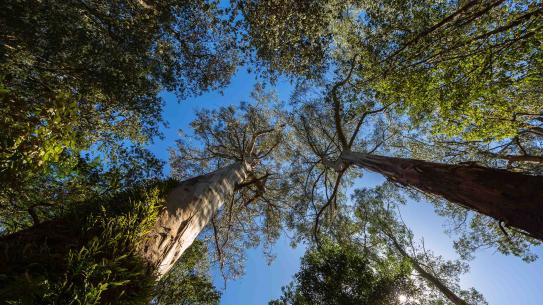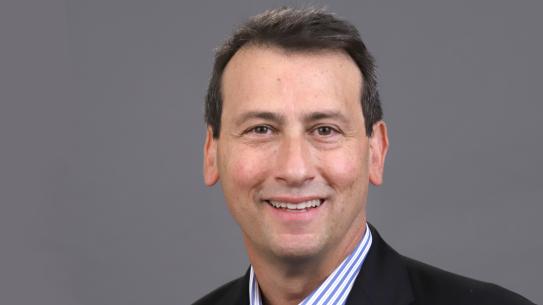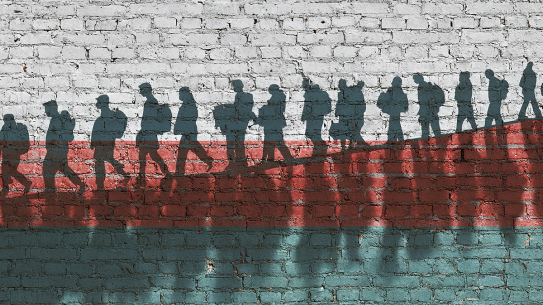Summer Program for Teens Offered by Poly and Cardozo High Featured in
An ambitious group of Cardozo High School students explored the endless possibilities of nanotechnology during a program offered by the school in conjunction with Polytechnic University. The TimesLedger, a Queens based newspaper, recently featured the successful program, which was co-coordinated by Poly Professors Victor Barinov and Kalle Levon.
| Professor Barinov demonstrates to students how to electrospin nanofibers. |
20 Cardozo Students Explore Nanotechnology
By John Tozzi
The TimesLedger Newspapers
What can you do with something that's 0.000000001 meters wide? Make cost-efficient hydrogen fuel cells? Target cancer treatments at sick cells to eliminate the side effects of chemotherapy? Or build an elevator to space?
Some Cardozo High School students are exploring those very questions this summer at a two-week intensive program on nanotechnology that the school is offering in conjunction with Polytechnic University in Brooklyn.
Nanotechnology is an emerging field that combines elements of chemistry, biology, physics, engineering and other scientific disciplines to use tiny tools the size of molecules. Nano materials exploit their small size and relatively large surface area to achieve things that would be unfathomable at larger sizes. Scientists say the applications could transform everything from communications to medicine to sports.
"This is like the next technology that's going to change your life, just like commercial technology in microchip processors changed your life," said Wendy Rauch, the Cardozo chemistry teacher coordinating the program.
The 20 Cardozo students who signed up for the two-week course design and conduct experiments every day in a second-floor lab at the school. The instructors crafted the program to be a hands-on experience.
"It kind of paves the way for our introduction into medicine and science," said Alexander Lemell, a sophomore from Bayside. "It's a new topic that's going to be a new thing that's talked about in the future."
The program gives young scientists a head start on regional competitions leading up to the prestigious Intel Science Talent Search and adds an impressive line to college applications. But above all, organizers said, it teaches students how to think creatively.
"America's future is in knowledge-based society," said Kalle Levon, the Finnish-born Polytechnic professor who is leading the program. "This is where the innovation happens."
Chemical Engineering Doctoral student, Andrea Tuckett, demonstrates how to study nanofibers. |
Students spread around the lab Friday in front of microscopes, computer screens, test tubes and beakers, performing experiments with carbon nanotubes-thin chains of carbon that are incredibly strong. Such tubes might be the building blocks of the space elevator. During the second week of the program, students will focus on how nanotechology could be used for delivering drugs more effectively to patients.
For Cardozo Principal Rick Hallman, the partnership with Polytechnic is a dream come true. Even better is that the sophisticated experiments can be done in the school's classrooms with tools student have at hand.
"Really good science can be done with relatively modest equipment and devices," Hallman said. "To be able to have significant scientific research done and to have it here, we're salivating at this."
The students were salivating too.
"Basically we're talking about how nano parts will affect the future," said Lewis Chen, a junior from Bayside. "I might think of an idea or maybe I could create an invention that could help me or help the world."
07/13/2006
©Times Ledger 2006



